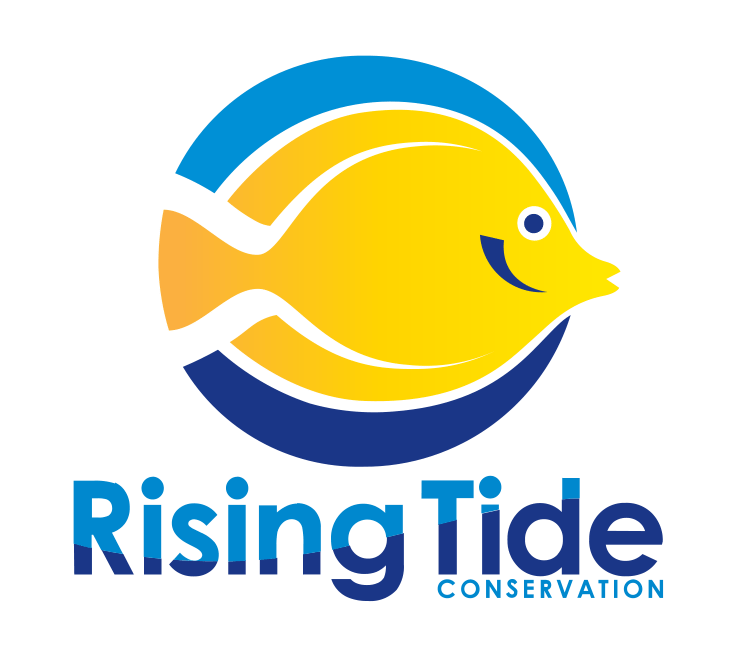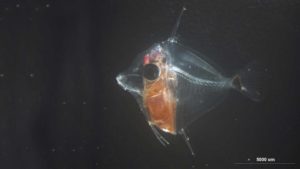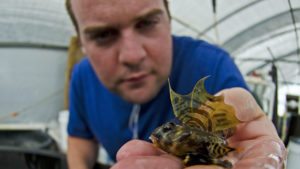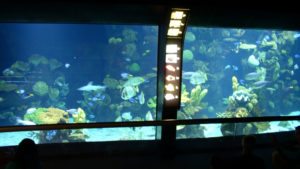Hello all!
I would like to start my first blog post with a grand THANK YOU to the University of Florida Rising Tide team: Matt, Eric, Kevin and especially Judy St. Ledger for choosing me to join them in what is an incredible opportunity! Thank you to Dr. Roy Yanong, my academic advisor, University of Florida, the host institution for this whole program, and say thank you to Sea World and Busch Gardens for funding this project.
I am very excited to have started my position here at the UF’s Tropical Aquaculture Lab in Ruskin, FL. I have been busy in my first month. There is much to learn, observe, and understand from such a knowledgeable staff. Training is hands on here and I have been incorporated in numerous projects including system design and construction, aspects of fish health, broodstock husbandry and larval rearing. Exciting enough as being incorporated into this program is; I have also raised several new species to me (grunts) and one new species to the lab (highhats) from eggs given to us by Discovery Cove. I am thrilled to have been thrown into the mix and have these results. The staff has taken me in as one of their own and is always willing to help. Great people do great things!
As the newest member I am inclined to introduce myself to our associates and readers, whom I hope to have the pleasure of meeting at some point.
I grew up in Rhode Island—basically living in the ocean throughout my youth. I love fishing, freediving, boating, and every other activity involving the ocean. I attended Florida Institute of Technology in Melbourne, Florida for my undergraduate degree where I attained a B.S. in Aquaculture and Marine Biology. Growing up I had multiple saltwater tanks so I was drawn to work in the only lab on campus full of fish, the Aquaculture Lab under Dr. Junda Lin. I worked there for 4 years during my undergrad and gained valuable experience I would need to be a successful applicant for my current position with Rising Tide.
My position is part of the Rising Tide Initiative to raise marine ornamental species, with a concentration on Chaetodontids. I am working with the Milletseed Butterfly fish, Chaetodon miliaris, an endemic species in Hawaii. These are gregarious planktivores, unlike many species of butterflies, which are corallivorous or feed on coral. Large schools form over reefs feeding on zooplankton in the water column. Our broodstock just arrived from Quality Marine in Los Angeles, who graciously donated the fish in support of Rising Tide. We owe them immensely for being so gracious and supportive of the Rising Tide Initiative. The fish look fantastic and have acclimated well to their new home here at the Tropical Aquaculture Lab. This is just the first step of this project. The next steps will truly test my skills and the skills of the team. Our goals are to induce spawning in captivity in the Milletseed butterfly and then discover the secrets of larval chaetodontid species and other marine planktivorous species. We hope to understand the requirements needed to breed and raise Milletseeds so that we can use these techniques to rear similar species and transfer our knowledge to commercial producers so aquacultured fish will be in the marine ornamental trade not wild caught fish.
Again, I would like to say thank you to everyone contributing to my project: Rising Tide, Quality Marine, Sea World, Busch Gardens, and University of Florida.
Cheers,
Jon-Michael Degidio



